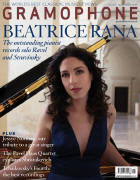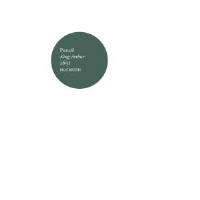Texte paru dans: / Appeared in: |
|
 |
Outil de traduction (Très approximatif) |
|
Reviewer: David Vickers The problematic sources of the music (none of which are autographs) have been reappraised thoroughly. The duet ‘You say, ’tis Love’ is considered incongruous in its customary position in Act 5 just before the patriotic masque, so it is relocated to the end of Act 4 after the passacaglia ‘How happy the lover’. The usual final song and chorus in praise of St George is not in 17th-century sources and unlikely to be authentic Purcell, so it is replaced by an adaptation of superior music from Dioclesian (‘Sound Heroes, your brazen trumpets sound’, Jeremy Budd’s high tenor in dialogue with high-wire solo trumpet). I regret the omission of a few short internal orchestral passages from a couple of songs on grounds that their style is ‘untenable’ but the oddly interrupting section for strings during Cupid’s ‘’Tis I that have warm’d ye’ is repositioned logically into the song’s prelude. Two authentic trumpet tunes are omitted but ample compensation comes from the insertion of a suite from Amphitryon (an immediate surprise prior to the usual Overture) and a rondeau from Distress’d Innocency (it shares rhythmical common ground with its preceding lively chorus ‘Come, shepherds, lead up a lively measure’). An aire from Bonduca segues aptly into two Sirens imploring Arthur to ‘come and bathe with us an hour or two’ (the hero has his work cut out to resist the beguiling earnestness of Carolyn Sampson and Anna Dennis), and a zesty rondeau from The Old Bachelor is interpolated before the masque of British prosperity is inaugurated by Roderick Williams’s suave Aeolus (‘Ye blust’ring brethren’). The band’s use of low pitch (A=392Hz) suits the idiomatic use of high tenors rather than modern countertenors on the alto parts. Playful recorders and chuckling bassoon are made to sound as if onstage in ‘Shepherd, shepherd, leave decoying’ (sung by Dennis and Mhairi Lawson with a sly hint of knowing innuendo), while drums and silver trumpets without modern vent holes sound as if behind the scenery in ‘Come if you dare’ (sung gregariously by James Way). The precisely balanced string band (three per part) has bass violins on the lowest part instead of cellos (likewise, there is no anachronistic double bass); the use of unwound all-gut strings set up with equal tension and French-style bow holds are vital elements that enhance delightfully subtle string shading. Theorbos, guitars and harpsichord accompany singers without bowed string bass instruments – an approach that provides a whispered discretion to the trio ‘For folded flocks’ – but seldom play in orchestral pieces; Purcell’s fully textured part-writing works beautifully without plucked continuo in the shaded aire that opens Act 2 and the tenderly phrased solo strings that introduce ‘Fairest isle’ (Sampson’s impeccable declamation of Venus’s blessing of Britain replete with lovely embellishments). The eight soloists with two additional singers form an excellent chorus that is adept in every context, whether depicting heathen sacrifices, quick-fire calls between competing evil and good spirits in ‘Hither this way’ (Philidel’s tricky solo part made to sound easy by Sampson), soft seductiveness in ‘How blest are shepherds’ (its phrases given plenty of time to breathe by McCreesh) and the gorgeous passacaglia ‘How happy the lover’. A quintet of rougharound-the-edges bystanders is roped in for the refrains in ‘Your hay it is mow’d’, its ringmaster Comus characterised convivially by Williams. The Frost Scene is given a charming performance by Rowan Pierce’s gleeful Cupid and Ashley Riches’s thawing Cold Genius; the tempo of the chorus of Cold People ‘quiv’ring with cold’ is on the slow side. Throughout the opera McCreesh’s speeds are relaxed rather than driven – no bad thing, to my mind, and it results in Dryden’s wonderful poetry being acted with personable clarity, and the lucidity of musical gestures ensures that affection and intimacy are hallmarks of a performance that conveys a humane smile. |
|




